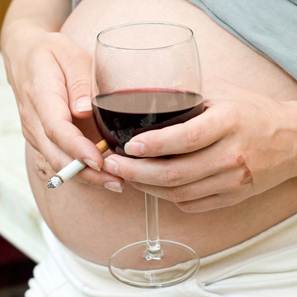Best natural therapies
Traditional
Chinese Medicine (TCM)
TCM enhances the success rate of Western
fertility treatments, reported a small study in the European Journal of
Integrative Medicine. More research is needed, but the anecdotal evidence is
strong.
Hypnotherapy
This can have a tranquillising effect,
helping to ease stress and reduce fears and anxieties about pregnancy, which in
turn, theoretically, should improve your chances of conceiving. A study by a
team at Soroka University in Israel found that hypnotherapy can help improve
the pregnancy rate of women undergoing IVF.
Acupuncture
One German study found that acupuncture
boosted the chances of pregnancy in women undergoing IVF, possibly by
increasing blood flow to the uterus and relaxing muscle tissue to help the
embryo implant. It’s not clear whether it can help boost fertility more
generally, but it’s said to balance energy in the body that may be out of
kilter.
Conception diet
Fertility
friends
Kate: Rich in folic acid, which protects
against birth defects.
Flaxseeds: High in omega fats that help
balance fertility hormones. Aim for 2 tsp a day ground up and sprinkled over
salad; porridge or blended in a casserole or smoothie.
Brown rice: Helps balance blood sugar and
hormones.
Sardines: Full of fertility-boosting
omega-3 fats and vitamin D.
Lentils: Nutrient-dense and full of fibre
to help regulate blood sugar and keep hormones on an even keel.
Sesame seeds: Rich in zinc, a fertility
super-nutrient. When baking, swap some wheat flour with sesame flour for a
nutrient boost.
Fertility
Enemies
Factory-made cakes: Often packed with
artificial and unhealthy trans fats – look for the words “hydrogenated” or
“partially hydrogenated” on the label.
White bread: Sends your blood sugar soaring
then plummeting, which can upset your hormones. Opt for whole-meal instead
Mass-market chocolate bars: A
fertility-bashing mix of blood-destabilising sugar, caffeine-containing
chocolate, trans fats and not a lot of micronutrients. Help yourself to a small
amount of finest-quality dark chocolate instead, which has antioxidants along
with chocolate pleasure.

Caffeine, smoking and alcohol can
increase the risk of miscarriage
Avoid caffeine, smoking and alcohol
Drinking any alcohol can send your
fertility plummeting, possibly cutting it in half – and the more you drink, the
less likely you are to conceive. Too much alcohol also reduces testosterone,
reducing libido, and affects sperm quality and quantity in men. Caffeine is thought
to disrupt fertility hormone levels and many affect the muscles in your
fallopian tubes, which carry eggs to your womb. Regularly consuming more than
200mg of caffeine a day (a cup of filter coffee is about 100mg, a mug of tea is
about 75mg) may also increase your risk of miscarriage. Smoking is so bad for
your general health, as well as fertility, that you should quit before trying
for a baby.
Go organic
“Environment toxins, such as pesticides and
other synthetic oestrogen and oestrogen imitators, are a potential cause of
delayed conception, so switch to organic wherever possible” says Glenville. “We
consume too many hormones and hormone-like compounds in everyday food that can
push us into toxic overload. This can affect ovulation in women, and lower
sperm count and sperm viability in men.” Organic food often comes in healthier
packaging, too.
Exercise right
It goes without saying that being fit makes
sense if you’re trying to conceive. “Exercise helps you stay in shape – if you
are over-weight or underweight it’s harder to conceive” says Emma Cannon,
fertility guru and author of The Baby-Making Bible (Rodale; $23). “It can also
reduce stress, making it more likely you’ll conceive,” she adds. However, the
wrong kind of exercise, just like the wrong kind of food, can be detrimental to
your health and fertility. “The focus should shift away from wanting a
“red-carpet body” if you are trying to get pregnant,” says Cannon. Working out
regularly to exhaustion, or doing a workout every single day that gets you out
of breath, without taking any rest days, will reduce your chances of
conceiving. Instead, adopt a sensible exercise regime and avoid hours of
punishing workouts every day of the week. If you’re a heavy high-impact
exerciser and want to get pregnant quickly, consider toning down your workouts.
Optimise your chances of conceiving by including more low-impact workouts such
as yoga and swimming, instead.
Test your fertility
The “fertility self-assessment tool” at nhs.uk
will advise on whether you need to seek medical advice about your fertility.
If it seems to be taking too long to get
pregnant, the best way to measure your fertility is with checks at an NHS or
private clinic. Basic tests include an ultrasound scan to check the womb and
ovaries, blood tests to measure fertility hormones such as follicle-stimulating
hormone (FSH), luteinizing hormone (LH) and progesterone, tests for sexually
transmitted diseases or polycystic ovary syndrome that can reduce fertility.
Men will have the quality and quantity of sperm measured.
Home kits may help you gauge your fertility
– some monitor ovulation and the best two days to have sex, such as Clear Blue
Ovulation Test Kit ($32; boots.com). Others predict how many eggs you might
have left, such as Ovarian Ageing Profile, ($517; medichecks.com) or
DuoFertility, ($767; duofertility.com). Most analyse blood or urine for
hormones that may predict how many eggs you have left. But never rely on them
to decide how long you can wait before starting a family. Doctors fear they may
give women false hope because they don’t give a complete picture about the
quality of the eggs or detect other problems, such as blocked fallopian tubes
or a partner with low sperm count.